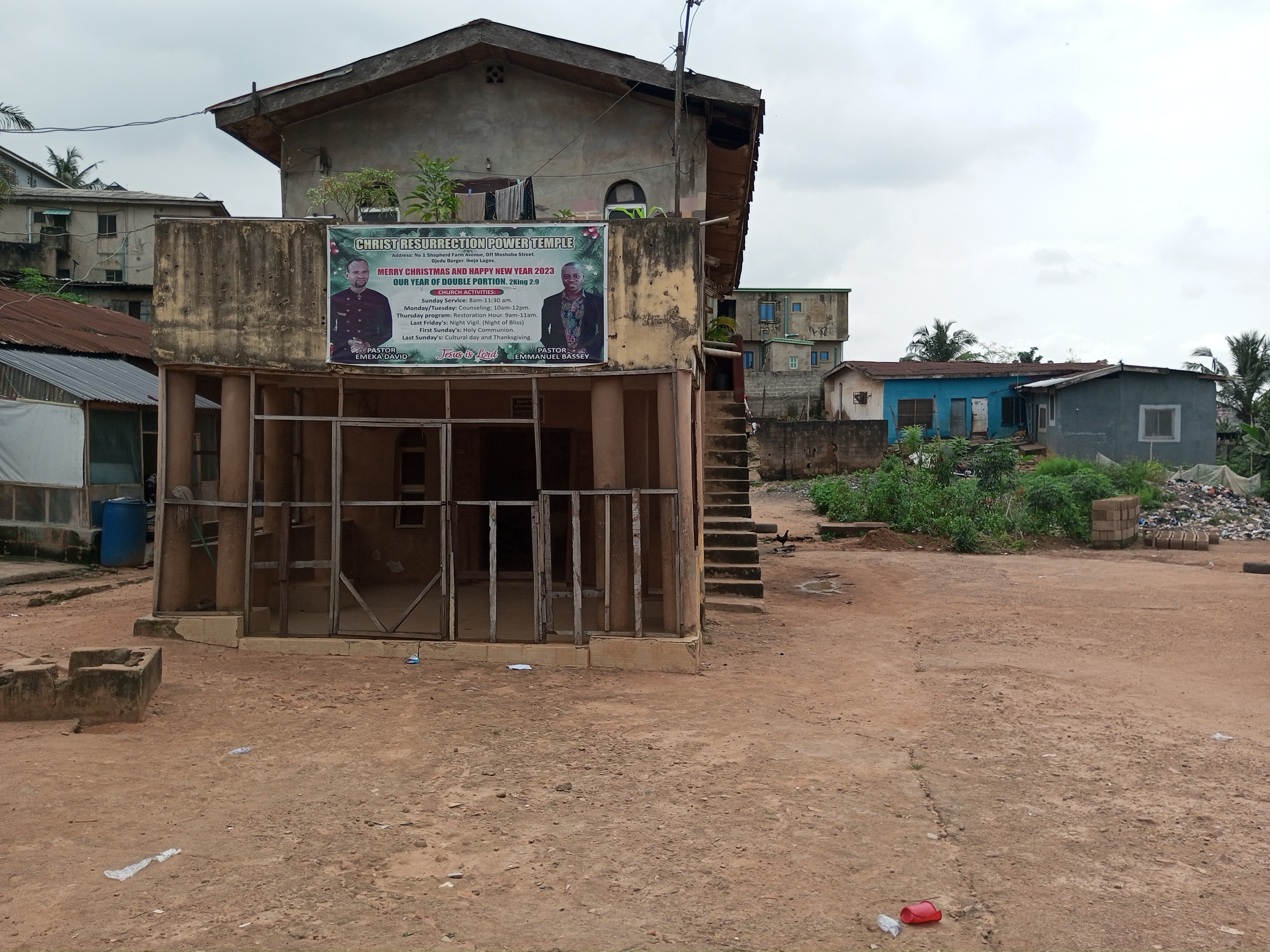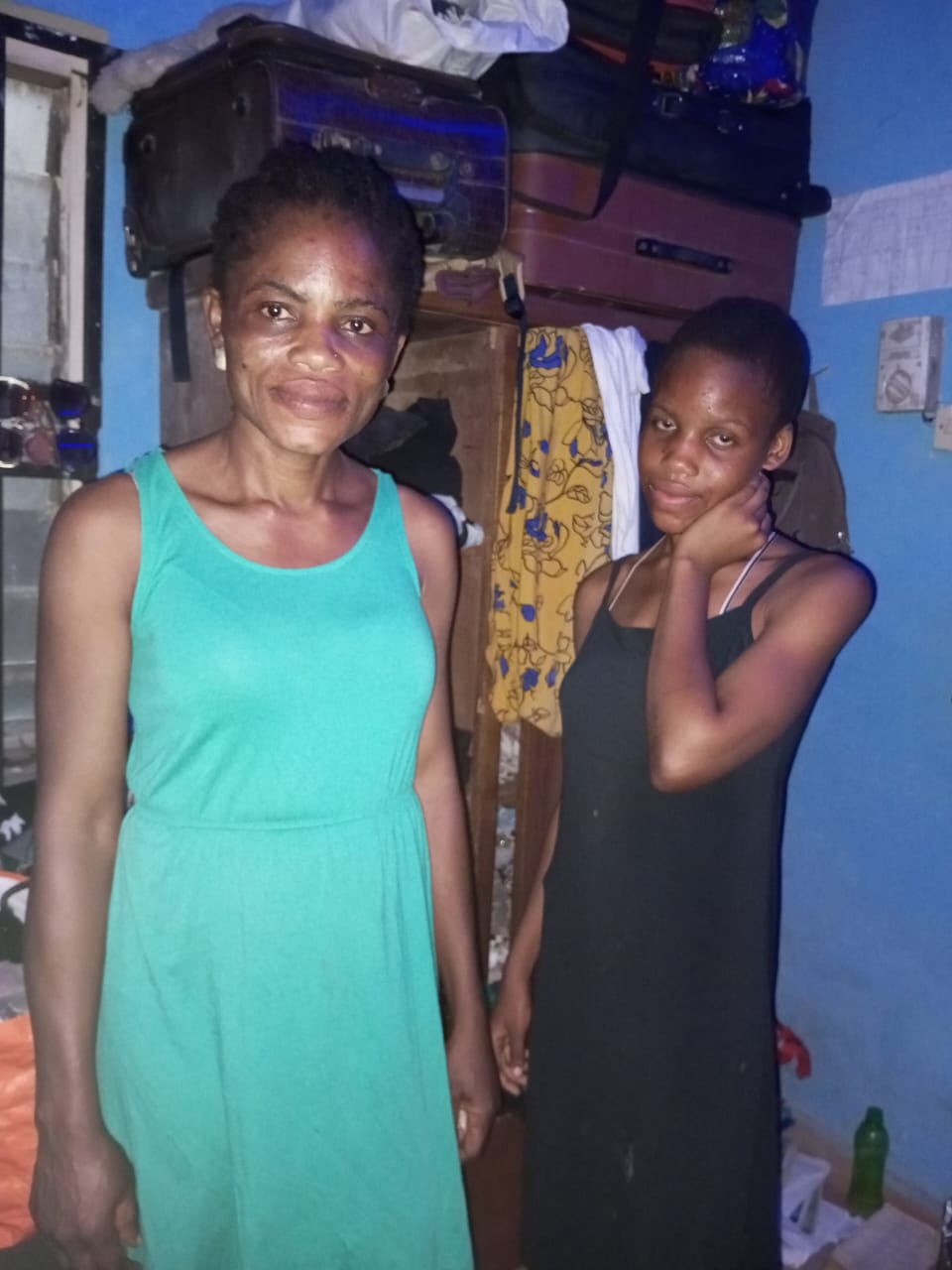Although faith is a powerful force that can inspire, motivate, and transform lives, it can also be abused and exploited by many, including fake prophets. In this article mirroring Christina Nwodo, a single mother of one, Joan Obinagwam exposes the dark side of faith, the tactics employed by these charlatans in addition to providing guidelines on how to discern and avoid false prophets, along with providing support the for victims.
Faith is an integral aspect of human existence, providing solace, guidance, and hope to millions around the world. However, behind the veil of genuine spirituality, there exists a dark side – a realm where fake prophets exploit the vulnerability of their followers, causing immense agony and devastation.
Fake prophets are people who claim to have a special message from God, but in reality, they are deceiving others for their own selfish gain. They often target vulnerable people, such as students, the sick, singles, unemployed etc who are looking for guidance, hope, or miracles. They use various tactics to manipulate their victims, such as flattering them, prophesying from their own imagination, or appealing to their earthly desires. They then ask for money, gifts, or sexual favours in exchange for their false promises. Some of them even use threats, violence, or blackmail to coerce their victims into submission.

CHRISTINA’S ORDEAL
In a world where faith can bring comfort and guidance, it is disheartening to uncover instances where it is used to exploit the vulnerable. In the case of Christina Nwodo a.k.a Ego, a single mother seeking solace, her encounter with a fake prophet— Chukwuma Nwadike shattered her dreams, drained her resources, and left her emotionally devastated. Through her ordeal, we shed light on the sinister tactics employed by these charlatans and the impact they have on their victims.
Miss Nwodo, a hardworking single mother struggling to make ends meet was introduced to Mr. Chukwuma by her mother who already lost two grown up children within two years.
“I was taken to prophet Chukwuma’s place by my mother who already buried two of her children within a space of two years. Were where eight children from my mother’s womb. She was scared that I would die too,” Christina narrated.
Beyond the fear of death, Christina yearned for stability and a brighter future for her only child, Sharon Emmanuel, she turned to her faith as a source of hope. Little did she know that her pursuit of solace would lead her down a dark and treacherous path.
Enter the fake prophet, a master in the art of manipulation and deception. Armed with charismatic charm and false promises, he presented himself as a divine messenger sent to alleviate Christina’s burdens. With calculated precision, he exploited her vulnerabilities, tapping into her deepest desires and fears.
One of the initial tactics employed by the fake prophet was to establish an aura of trust. He would listen intently, offering a sympathetic ear to the struggles of Christina’s mother while providing selective guidance that seemingly addressed her unique circumstances. This cleverly constructed feedback hooked her, slowly dismantling her critical thinking and paving the way for his manipulation.
As the charade continued, the fake prophet skillfully manipulated Christina’s expectations with an array of personalized “prophecies.” He would seemingly predict future events, revealing intimate details about her life. Such revelations left Christina astonished and fuelled her belief in the prophet’s divine connection.
But the true intention behind these “prophecies” became apparent when financial coercion entered the equation.
“He told me to go and get the price of a coffin and bring the money to him. I told him that I don’t have that amount of money,” Christina stated.
When Christina complained about not having enough money to pay for the coffin, he deviced other schemes to extort money from her.
“He didn’t stop at the coffin money. There are times he would ask me to drop money for a bag of rice (50kg),” Miss Nwodo continued.
Amid persuasions by the fake prophet for the need for her to make significant monetary contributions to ensure her blessings and secure her desired future, he requested for a loan from her to pay his rent.
Recounting her ordeal, Christina said:”In one of my meetings with him, he told me to loan him some money for his rent. I promised to give him the loan as soon as I receive money for my Ajo (thrift savings).”
Driven by a mixture of desperation, blind faith, and the hope for a better life, she emptied her savings, sparing no expense.
“I gave him N100,000 from my first Ajo, later, I gave him N75,000. Which sumed up to N175,000 which he promised to repay,” She disclosed.
As days turned into weeks and weeks into months, Christina’s financial situation worsened. Bills went unpaid, and the dream of stability for her child began to fade. Yet, even when she reached a breaking point, the fake prophet was relentless. He cunningly countered her doubts, promising that her ultimate breakthrough was just within reach, if only she persisted and sacrificed a little more.
“Instead of repaying the loan, he told me to bring money to buy suits (blazers) and shoes for three pastors. I told him that I didn’t have that kind of money. I insisted that he repay the loan,” she stated.
Christina recounted how she brought her elder sister who was sick to him for prayers, who died weeks after. It was then it dawned on her that she has been deceived and manipulated.

FAKE PROPHETS’ DEFENSE
Fake prophets often provide a mirage of excuses to justify their actions, which are typically manipulative and deceitful. Some common excuses may include claiming to have divine revelations or special connections to a higher power, asserting that their actions are for the greater good, or suggesting that their followers need to make sacrifices for spiritual growth.
Just like most suspects of crime, they feign not guilty. Prophet Nwadike’s case was not an exception to the trend as Nwadike denied having any dealings with Christina.
In a phone conversation to the prophet by Confiance News he said,” I don’t remember knowing any Ego or owing her money. If you have her number send it to me, let me call her.”
Although he promised to get back to Christina (Ego) he never did as Christina did not hear from him nor did he respond to her calls.
These excuses are used to exploit the trust and vulnerability of their followers for personal gain or power. It’s essential to be discerning and critical when evaluating the claims of individuals who present themselves as prophets to avoid falling victim to their deception.
FAKE PROPHETS’ PANDEMIC
The rate of the incidence of fake prophets in Nigeria as at 2023 is not easy to determine, as there is no official data or statistics on this issue. However, based on available data, we can infer that the problem of fake prophets is prevalent and serious in Nigeria, especially among the Christian faith.
Data sourced and collated from the Apa Local Government Area showed that at least 98 men were killed between January and May 2023, and 12 communities were also affected within the period under review.
Click here to view data on some cases of fake prophets.
In the same vein, data mined from Global Centre for the responsibility to protect, showed that from January 1, 2009 to January 1, 2012, more than 35,000 people have been killed since 2009 when Boko Haram, which was originally founded as an Islamic group, launched its insurgency aimed at overthrowing Nigeria’s secular government and establishing an Islamic state.
Moreover, a report by Premium Times— an online media, revealed that in May 2013, Ombatse, which combines cultural beliefs and Christianity, built a fierce loyalty through blood oaths, killed over 55 police officers and 10 operatives of the Directorate of State Security.
According to a report by the Police Command, a pentecostal movement known as Favour Anointing Ministry in Rivers State, south-south region of Nigeria, two brothers were charged for financial fraud in March 2014.
In the same manner, two men, Ayo Jimoh and Abdulahi Jubrila, were arrested by the police for defrauding a woman, Mrs Comfort Macaulay, of N1 million as reported by the Punch Newspapers.
Shockingly, Ada Ibe (not real name) narrated her experience with another fake prophet who almost killed her but she narrowly escaped when the bike rider who was taking her to the scene of the prayer event hinted her of plans to use her for rituals.
Beyond Christina’s ordeal, there are other victims of the same prophet Nwadike, who testified to have suffered from his scheme.
Emeka Emezirike (surnames withheld) narrated how prophet Nwadike manipulated him into paying him a total of about N350,000 for coffin, white fabrics, and 20 pieces of N200 notes and other services to drive away the spirit of death which was lurking around him.
Emezirike recounts, “While offering his general prayers, during one of his meetings, he located my mum and started prophecying to her. He told my mother to call me inside his chambers that he saw death hovering around me. She did. I went to see him and he told me that he can see the spirit of death. He told me to buy a coffin, white fabrics of six yards, N200 into 20 places.
“He initially said that I would carry the coffin on my head to four junctions around 5.00 a.m in the morning. I told him that I can’t carry the coffin on my head and that I won’t die. He told me that I am right and that God doesn’t want me to die the reason he revealed the prophecy to him. He told me that since I can’t carry the coffin on my head, I should pay him to hire men who will do that for me.”
Confiance News also spoke to an erstwhile congregant of Nwadike’s ministry, Mary Udok (not real names) who narrated how he prophesied that she would get married and requested that she pays for assignment (spiritual items needed for the prayers) to expedite the manifestation to the prophecy. Despite heeding to his request the marriage did not happen. She narrated how he kept on extorting money from her until she stopped attending the ministry.
Nigeria is not the only victim of this scourge. The story of a Kenyan pastor, Paul Mackenzie, which ordered his followers to starve themselves and their children to death so that they could go to heaven before the world ended. A movement which led to the death of over 400 people in Shakahola forest where his followers camped with him, is still a shock to many.
LEGAL INTERPRETATION, PENALTY OF OFFENSE
The position and penalty of Nigerian law on fake prophets depend on the type of law that applies to them. Nigeria has a dual legal system, consisting of the secular law and the sharia law. The secular law is based on the common law inherited from the British colonial rule, and it operates in all parts of Nigeria. The sharia law is based on the Islamic law, and it operates in 12 northern states of Nigeria, where the majority of the population is Muslim.
Reacting, Imran Abdulganeey, a Lawyer and founder of a Non Governmental Organization (NGO) named Centre for Law and Civil Culture said that one of the legal definitions of fraud, deception and false representation in the context of of religious activities is Obtaining by false pretence, commonly referred to as OBT in legal palance simply means a False representation of past, present (or insinuation of future) facts that are made with the intent to defraud another person.
He said, “The offence of Obtaining by False pretences may be found in section 419, 420, 421 and 423 of the Nigeria Criminal Code Act. According to the act, Any person who by any false pretence and with intent to defraud, obtains from any other person, anything capable of being stolen , or induces any other person to deliver to any person anything capable of being stolen is guilty of an offence. The offence is felony and such person is liable, upon conviction to three years imprisonment.”
Expounding, Abdulganeey said,”Section 1 of the Advance Fee Fraud and other Fraud Related Offences Act No. 14 of 2006 provides thus: 1. (1) Notwithstanding anything contained in any other enactment or law, any person who by any false pretense, and with intent to defraud (a) obtains, from any other person, in Nigeria or in any other country for himself or any other person; or (b) induces any other person, in Nigeria or in any other country, to deliver to any person; or (c) obtains any property, whether or not the property is obtained or its delivery is induced through the medium of a contract induced by the false pretense, commits an offence under this Act.”
“(2) A person who by false pretense, and with the intent to defraud, induces any other person, in Nigeria or in any other country, to confer a benefit on him or on any other person by doing or permitting a thing to be done on the understanding that the benefit has been or will be paid for commits an offence under this Act. (3) A person who commits an offence under Subsection (1) or (2) of this Section is liable on conviction to imprisonment for a term of not more than 20 years and not less than seven years without the option of a fine,” he continued.
Abdulganeey, who is also a rights activist, said: “The above provision of Section 1 of Advance Fee Fraud and other Fraud Related Offences Act No. 14 of 2006 has been subjected to judicial interpretation by the apex Court. In the popular case of DARLINGTON VS FRN (2018) 11 NWLR (PART 1629) 152, EJEMBI- EKO JSC which explained the elements to be established by the prosecution to sustain a charge of obtaining money by false pretenses as follows: The offence of obtaining by false pretense created by Section 1(1)(a) of the Advance Fee Fraud and other Related Offences Act, 2006 is constituted or committed upon the existence of the following facts I. A pretense is made by way of representation. II. From the accused person. III. To the person defrauded. IV. The representation is a pretense. The accused knows or has reason to know that the representation is false or does not believe in truth of the representation. VI. The accused makes the false representation with intent to defraud the victim to whom the false representation was made. VII. Consequence of the false representation the accused induced the victim to deliver or transfer some property or interest in to the accused or some other person. VIII. The property transferred is capable of being stolen i.e. is as portable.”
In his words, one may be wondering and confused as to how the above description of section 419, of the Criminal Code and Section 1 (1) of the Advanced Fees Fraud Act fits-in to the topic, however, a careful analysis of the day to day modus operandi of these acclaimed men of God and traditionalist, who falsely and with intent to defraud, prophecy, forecast and insinuate any positive or negative things that are likely to happen or befall their victims and then lure or cajole them and extort huge sum of money to make some purported sacrifice either to facilitate their perceived positivism or to forestall any perceived danger to their pray.
The Lawyer told Confiance News that the actvities of the so called fake men of God trascends the above definitions, in many instances, the victims, mostly women are sexually assaulted and in some instances, the victims end up paying the supreme price.
“In this circumstance, the appropriate law of the land for sexual assault/rape and murder which is life imprisonment and sentenced to death respectively, would be accordingly applied to such fake men of God found quilty of such offences,” he explained.
Illustrating, Abdulganeey cited the popular case of Reverend King who was sentenced to death at the High Court and his conviction was affirmed up to the Supreme Court of Nigeria and the recent conviction of Prophet Philip Segun who was sentenced to death for the killing of Favour Oladele, a final year Sociology student of Lagos State University (LASU) by Justice Christiana Obadina of the Osun State High Court sitting in Ikire, Osun State.
SEEKING REDRESS
Although seeking redress can be a complex and emotionally challenging process, there are many options available to victims of fake prophets.
Abdulganeey noted that victims of fake prophets often suffer in silence because “It usually downed on them that they have been cheaply duped, deceitfully manipulated and or sexually assaulted and as such, they would not want to be mocked, embarrased and or stigmatised by the members of the public.”
He pointed that victims of fake prophets should be encouraged to channel their grievances and report such incident to the appropriate authorities/ security agencies – the Nigerian Police, NAPTIP and several Non Governmental Organisation- who are statutorily saddled with this responsibility and have been very active in addressing several cases of manipulations, misrepresentations, sexual assault et cetera by the Victims of fake prophets.
“Interestingly, we have Legal Aids Council of Nigeria with offices in the 36 states of Nigeria and the FCT for the poor and indigent members of the public who could not afford the services of a Counsel. For instance, The Legal Aids Council renders Civil litigation service for the purpose of assisting indigent person to access such advice, assistance and representation in court.
“The Lagos State Government has also set up Office of Public Defender (OPD) , equiped same with both human and material resources . The OPD is saddled with the sole responsibilty of taking up any matter, be it civil or criminal, where the victims cannot afford the service of legal practitioners. Several other states of federation have equally followed the suit. These therefore, afford the victims of fake prophets ample opportunity to seek redress where their rights have been violated,” he disclosed.
CURBING EXCESSES
Regulating the activities of fake prophets requires collaborative efforts among stakeholders. For instance, the government can consider enacting and enforcing laws that prohibit false prophecy, fraud, extortion, and other crimes committed by fake prophets. The government can use existing laws, such as the Penal Code, the Cybercrime Act, and the CAMA Act, to prosecute and punish fake prophets who violate them. The government can also review and amend these laws to make them more effective and comprehensive in addressing the problem of fake prophets.
Nigerian government should reinforce educating and sensitizing the public about the dangers and consequences of following fake prophets. The government can use various media platforms, such as radio, television, newspapers, social media, and others, to disseminate accurate and reliable information about the signs and symptoms of fake prophets, how to identify and avoid them, and how to report them to the authorities. The government can also partner with civil society organizations, religious bodies, and community leaders to raise awareness and promote critical thinking among the people.
Importantly, government should intensify the monitoring and regulating the activities of religious organizations and leaders. The government can establish a regulatory body or agency that will oversee and supervise the registration, accreditation, and operation of religious organizations and leaders in Nigeria. The regulatory body or agency will ensure that they comply with the ethical standards, code of conduct, and best practices of their faith. The regulatory body or agency will also have the power to sanction or revoke the license of any religious organization or leader that engages in or supports fake prophecy or other malpractices.
Moreover, religious organizations like the Christian Association of Nigeria (CAN), the Nigeria Supreme Council for Islamic Affairs (NSCIA) et cetera, can regulate fake prophets in Nigeria by establishing and enforcing ethical standards, code of conduct, and best practices for their members and leaders. Religious organizations can set clear and consistent criteria for the qualification, ordination, and accountability of their pastors and prophets. They can also monitor and evaluate their performance in addition to conducting and applying appropriate sanctions or discipline for any misconduct or malpractice.
SUPPORTING VICTIMS
Supporting victims of fake prophets can be a challenging task, as they may have suffered emotional, spiritual, and financial harm. Nevertheless, all hope is not lost. Listening to their stories with compassion and empathy. Try not to judge them or blame them for falling prey to false prophets. They may have been deceived by smooth talkers who used the name of God to manipulate them. Acknowledge their pain and anger, and let them know that you care about them.
It is also important to share the truth of God’s word with them, which will help them to discern between true and false teachings, and to test every spirit by the standard of Scripture.
Being preys of fake prophets may have a toll on the mental health of the victims who may suffer various stages of trauma.
Trauma Responsive Psychotherapist and Lecturer at the University of Calabar, Dr. Blessing Ntamu, recommends administering psychological first aid in addition to encouraging victims to seek professional help if needed.
More so, some victims of false prophets may need counseling, legal advice, or financial assistance to recover from their losses. Refer them to trustworthy sources of help, such as your pastor, a Christian counselor, a lawyer, or a therapist. Do not try to handle everything by yourself, as you may not have the expertise or resources to do so.
CHRISTINA’S APPEAL
Behind the touching story of Christina Nwodo, lies a will for survival. Having suffered several stages of trauma as a result of her horrendous experience with the fake prophet, Christina, who has since suffered untold hardship— lost her petty business, evicted from her house and witnessed her only daughter of 13 drop out of school and is currently struggling with her health, appeals to well meaning Nigerians and philanthropist to come to her aid.
Here is Christiana Nwodo’s account details:
Account number: 3078248934
Account Name: Christina Nwodo
Bank: First Bank of Nigeria
For enquiries call: Joan Obinagwam on
+234 8152070180
This story was produced with the support of the International Center for Journalists (ICFJ), in partnership with Code for Africa.














Leave a comment